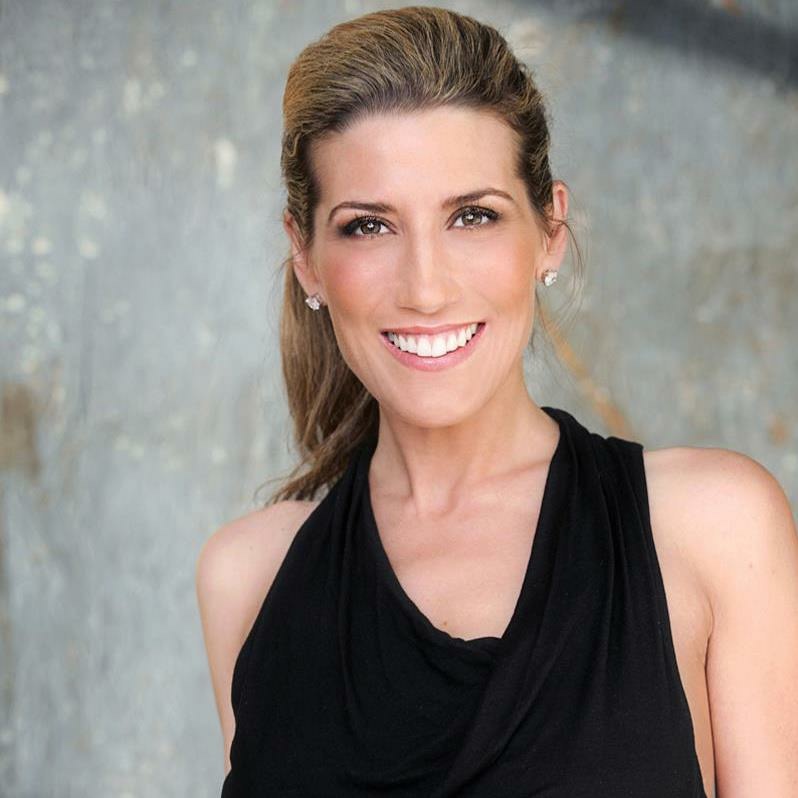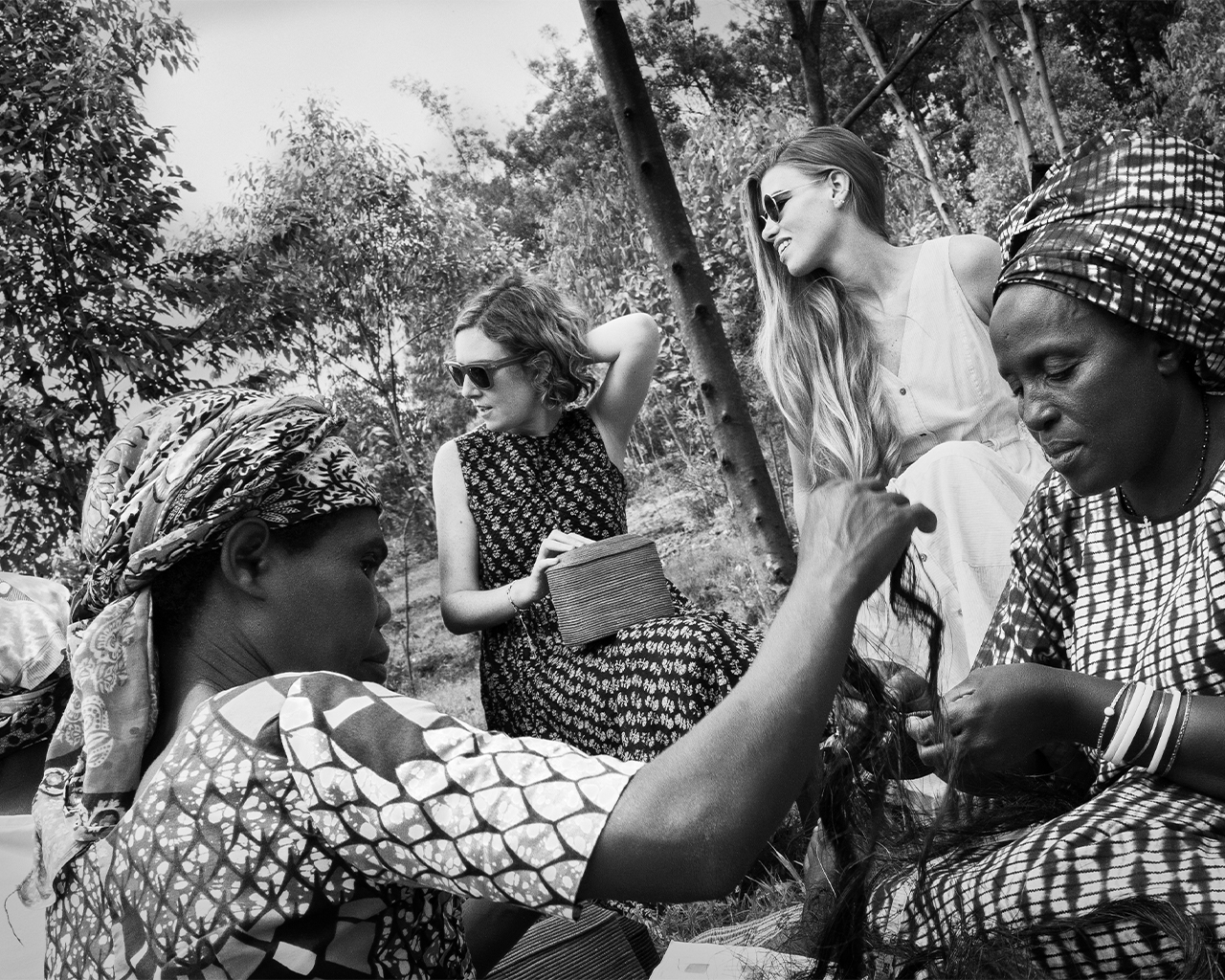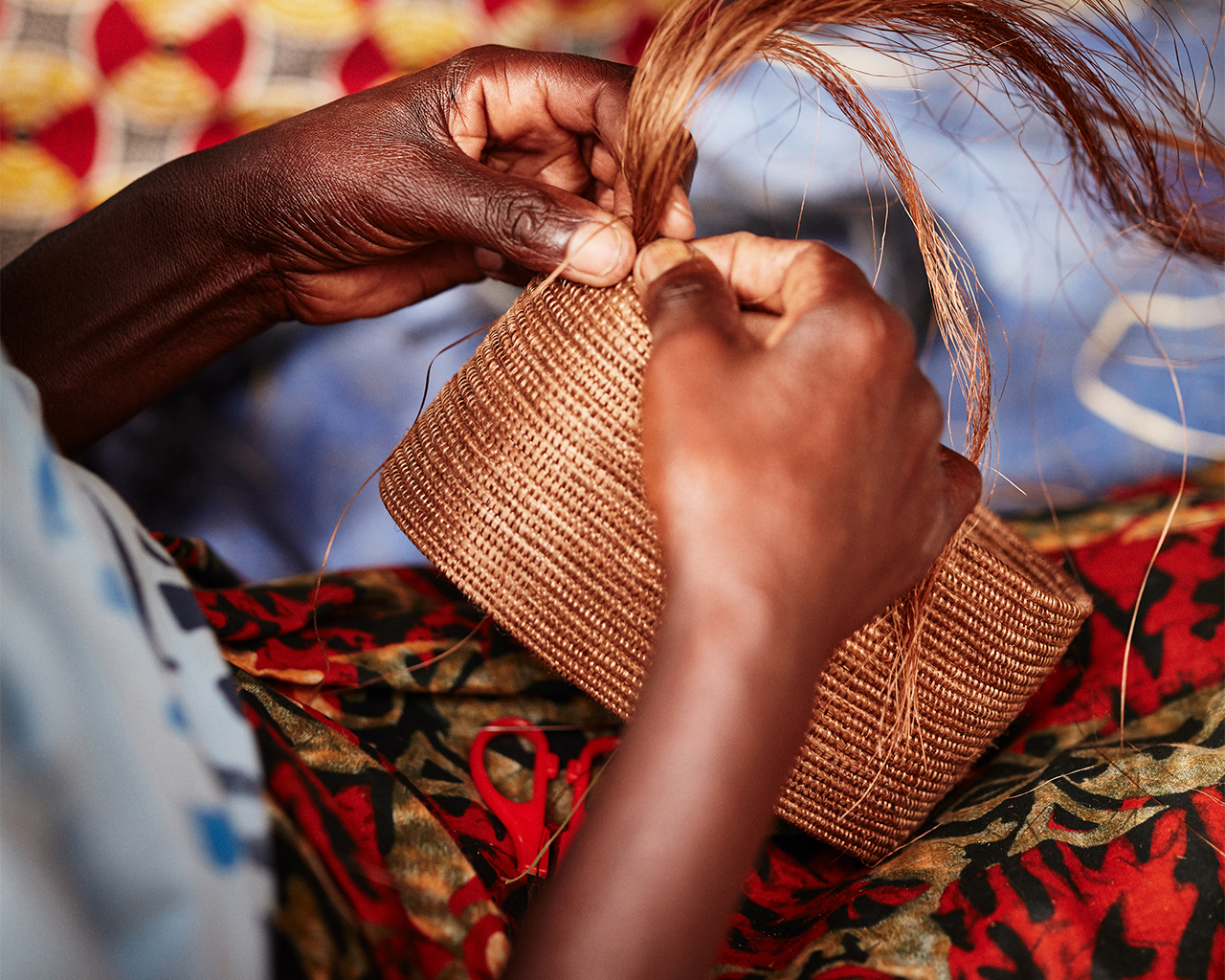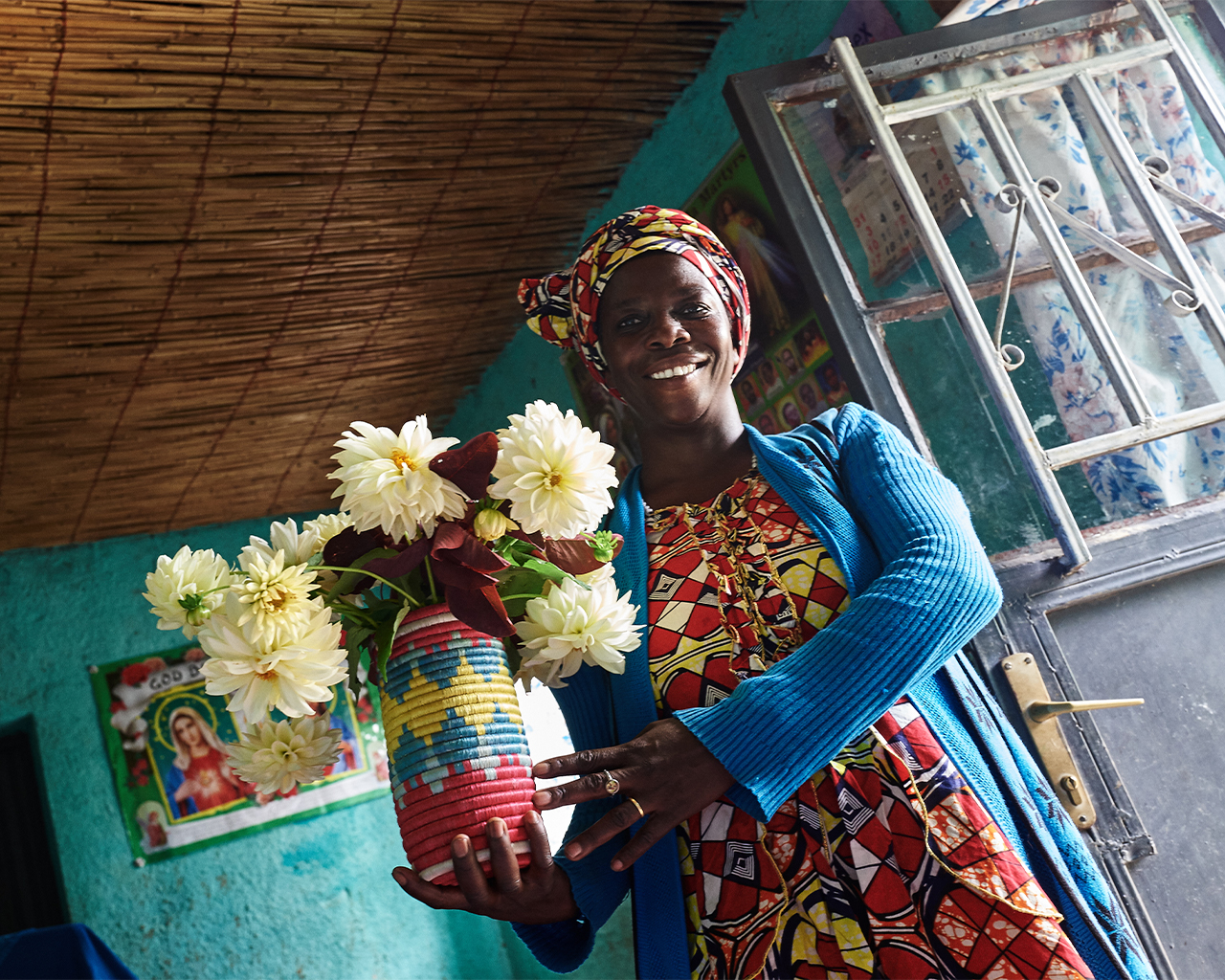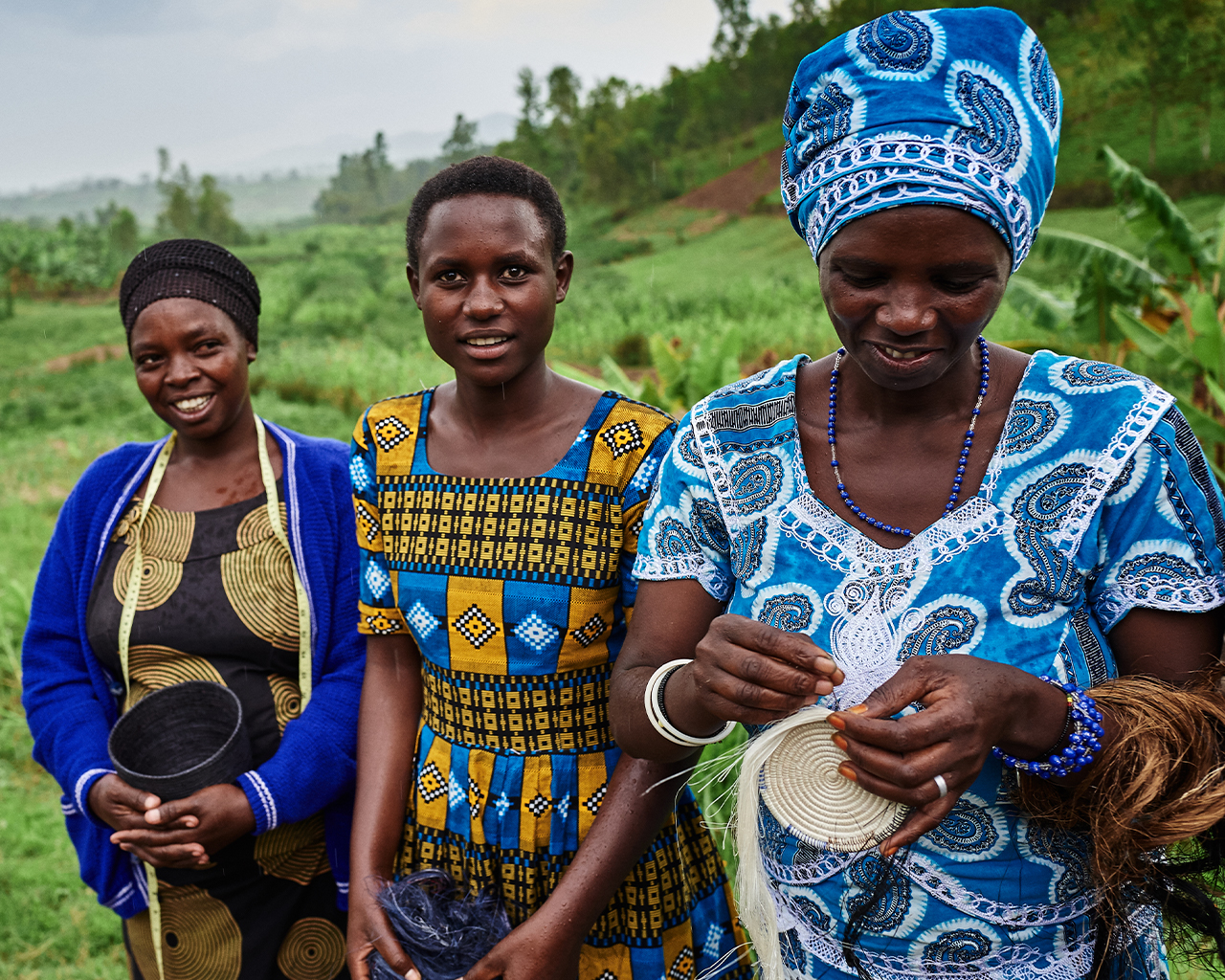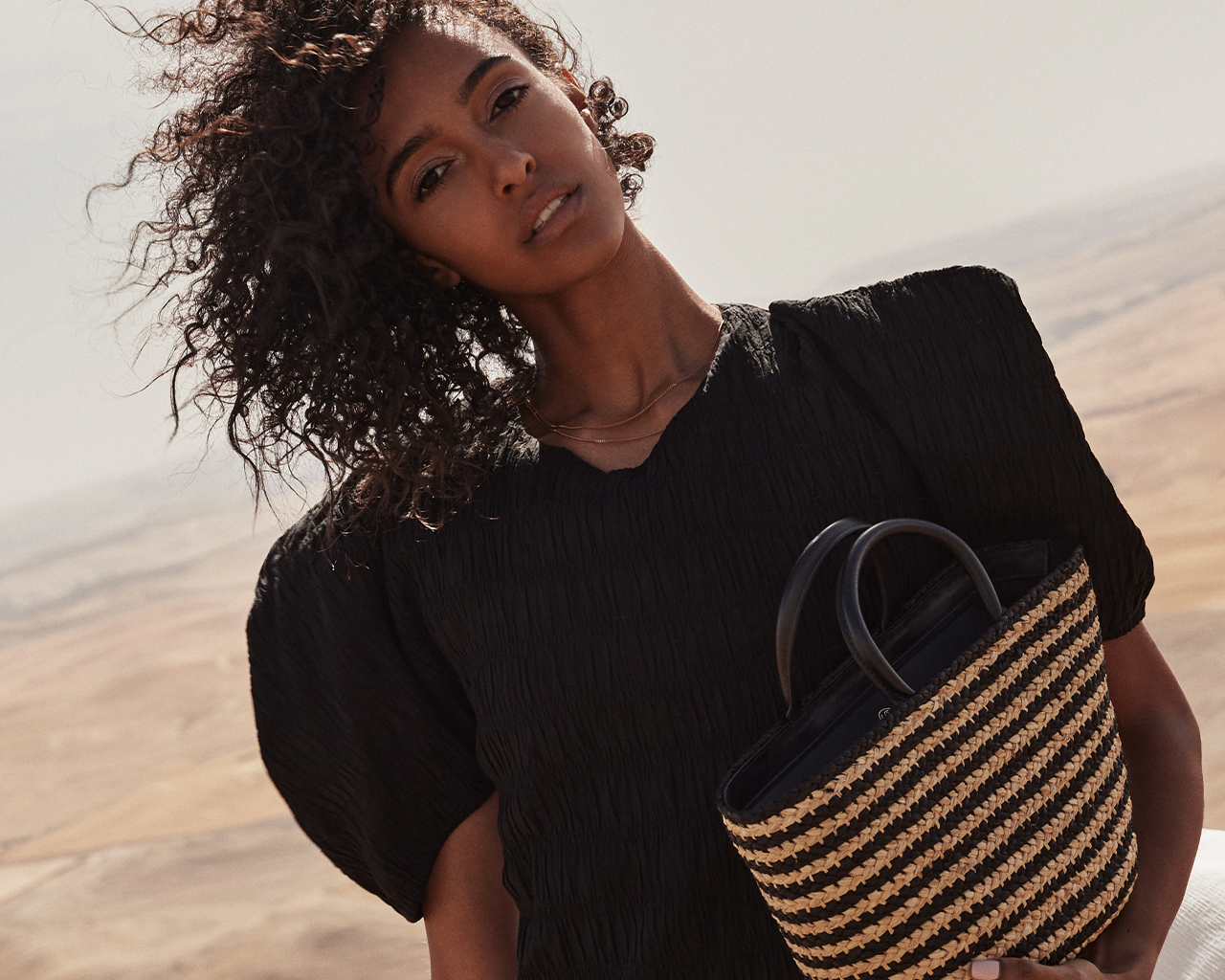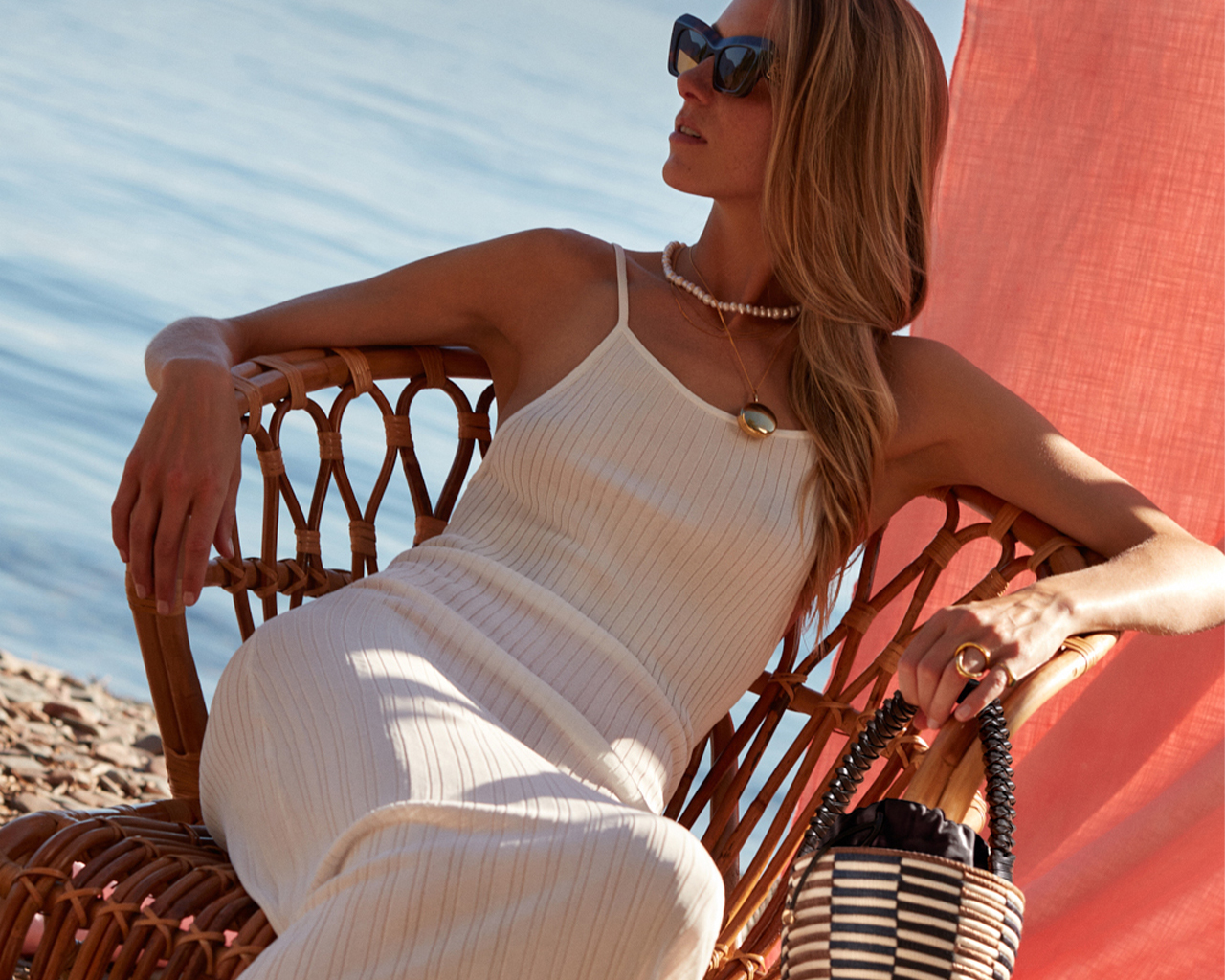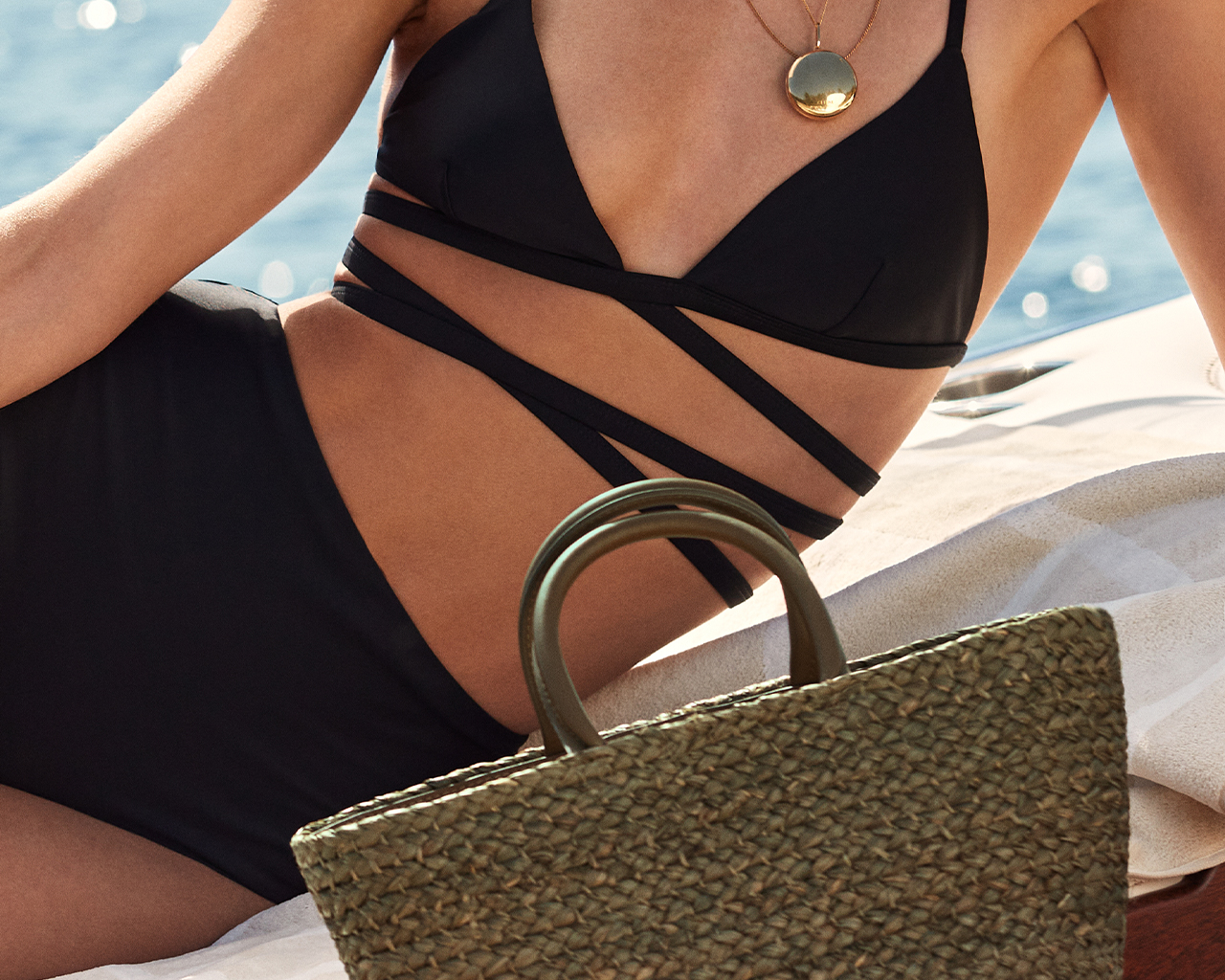
With so many brands making must-have handbags and accessories, it can be difficult to make a decision on what to add to any collection. But Cesta Collective, a values-driven handbag company that are created by female artisans in Rwanda with locally sourced materials, makes it easy. “There is nothing luxurious about ubiquity,” asserts effortlessly chic Erin Ryder, Cesta Collective co-owner. Now three years in, it’s confirmed: There is nothing ubiquitous about their bags or their business. Co-owned by Courtney Fasciano, the pair know a bit about the business: as fashion industry insiders with over 20 years of experience between them, they have seen the ‘dark underbelly of production intimately’ which set them on the path of building a brand dedicated to lifting women up while leaving ‘the smallest print on the earth’ as possible.
Despite each bag’s exquisitely hand-woven body, luxe Italian leather handle, and delicate gold finishes, they are not just another aesthetically appealing accessory. The brand is about more than just creating covetable handbags. “It’s about making an impact on a larger scale,” Fasciano explains, “Our business is built on making the right decisions for both the earth and our artisans.” These decisions, Ryder adds, “aren’t always easy on paper…but it’s not enough to greenwash a mission statement or just have a sustainable capsule.”
Each design is brought to life through a sustainable, production eco-system that reaches all the way to Africa. Design and seasonal colorway specifications are sent from the Cesta Collective atelier in New York to the head of one of their partner weaving collectives in rural Rwanda (all female-owned and operated, FYI). Here sisal plants, a renewable resource that is locally sourced and often harvested on the artisans’ land, are prepared for weaving by skiving the fleshy leaves down to fine threads. These threads are then tinted with organic vegetable dye before being woven into the envisioned product. Each piece is then finished in Italy by hand, with carefully chosen, sustainable materials. Understanding the value of owning something unique and not available on a mass scale, Cesta creates small-batch, limited edition designs that sell out so quickly, they often can’t even get one for themselves. Luckily their creative wellspring is evergreen and new styles are introduced seasonally…like the insanely stylish bucket bag.
As female business owners, Ryder and Fasciano strive to not only provide opportunities for women but also give them a voice in the process. Thus, the price of weaving each bag, based on time and energy required, is set by the weavers themselves — the more intricately designed bags can take up to 7 days to complete. A third-party, with standards higher than Fair Trade, audit their supply chain. With 1400 women trained on their product and each of these women earning four to five times the national salary average in Rwanda, Cesta is truly changing lives. Niyitegeka Liberte, Cesta Cooperative leader, and her family’s breadwinner has improved her family’s security with her weaving income which qualified her for loans she used to build her home and invest in land and livestock. Immacullee, now a burgeoning businesswoman, started her co-op with 14 weavers and now oversees and trains 70 women.
The life of the industry-disrupting entrepreneur is hectic and Ryder advises one to “know where to focus your time and energy, there will always, and I mean always, be way more to do than there is time in a day.” If only time were a renewable resource, imagine what these women would accomplish. Either way, they have shown that the future is definitely female…and a fashionable one at that.








